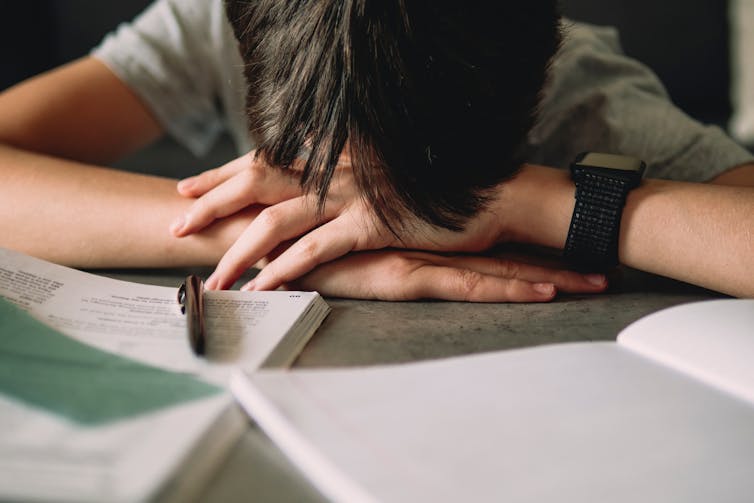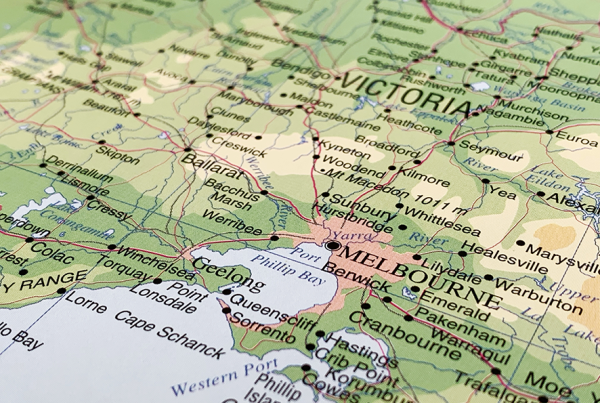It’s that time of year when students are waiting for school and university results that could change the course of their lives.

Uncertain waiting periods are among our most emotionally challenging experiences. In fact, research shows students are more stressed while waiting for their results than after finding out they have failed. This is because dealing with an uncertain situation is more stressful than dealing with a known negative outcome.
In our new research, we investigated how students can best approach this often agonising time.
Our research
We followed 101 university psychology students in Belgium receiving results that determined whether they could continue their degree.
We surveyed students ten times a day over two periods. We surveyed for two and a half days before they had their results, because previous research suggests uncertainty is hardest immediately before finding out outcomes. We then surveyed for six and a half days after results were received, because strong emotional responses can last several days.
We used a method called “experience sampling”, which involves sending short surveys repeatedly each day. These were done via smartphone.
Every survey, students used a slider scale to tell us how strongly they were feeling four positive (for example, “proud”, “happy”) and six negative (for example, “disappointed”, “anxious”) emotions. We asked questions such as: “right now, how anxious do you feel about your results?”.
Students also used a slider scale to indicate how much they used six common strategies to manage their feelings (for example, distracting yourself, accepting your feelings, or rethinking the situation). We then tested which strategies predicted better emotional outcomes both during the wait, and after results were known.
What to avoid
We found there are strategies students should avoid while they wait for results. These strategies are associated with stronger negative emotion when used in the waiting period. Two takeaway findings include:
1. Don’t reframe the situation before you know what it is
When managing stress, one generally helpful strategy is reappraisal, which involves rethinking an emotional situation to reduce its impact. For example, a student might interpret failure as a learning opportunity.
Surprisingly, we found the more students reappraised while they waited, the worse they felt. For example, a student thinking “if I fail, I can learn from it”.
But we found the more students reappraised after they received their grades, the better they felt. Reappraisal seems to only help after knowing your grades, when there is a concrete outcome to rethink.
2. Take care with how you share
When feeling bad, people often share their emotions with others. For example, a student might share their worries with a friend.
But the more students in our study shared their emotions with others while waiting for their results, the worse they felt. This may be because students are sharing to vent or complain, leading to a downward spiral. It also could be that students share with friends who are also worried, and their friends’ feelings compound their anxiety.
What can you do instead?
We found students who accepted their emotions as they were, without judgement, felt more positive during the wait. This strategy also worked well after students learned their results, regardless or what they were. This suggests acceptance is a consistently helpful approach.
Research suggests when we accept our emotions, they lose their power. In accepting our emotions, we confront the reality of the situation and let our feelings run their natural course, rather than swimming against the tide.
How can you accept your emotions?
You can practise acceptance in three steps:
1. Notice and label your feelings. For example, “I’m feeling anxious” or “angry” or “ashamed”
2. Experience these feelings fully, even if they are negative. Don’t try to control, diminish, or avoid them
3. Don’t judge these feelings. Recognise they are normal and valid. For example, you might think, “I feel really anxious about my results, but that’s reasonable and OK”.
Acceptance may feel counterintuitive, but our research shows it can help students navigate that long and anxious wait for results.
Authors
Elise Kalokerinos
Senior Lecturer in Psychology, The University of Melbourne
Ella Moeck
Lecturer, School of Psychology, University of Adelaide
This article is republished from The Conversation under a Creative Commons license. Read the original article here.









